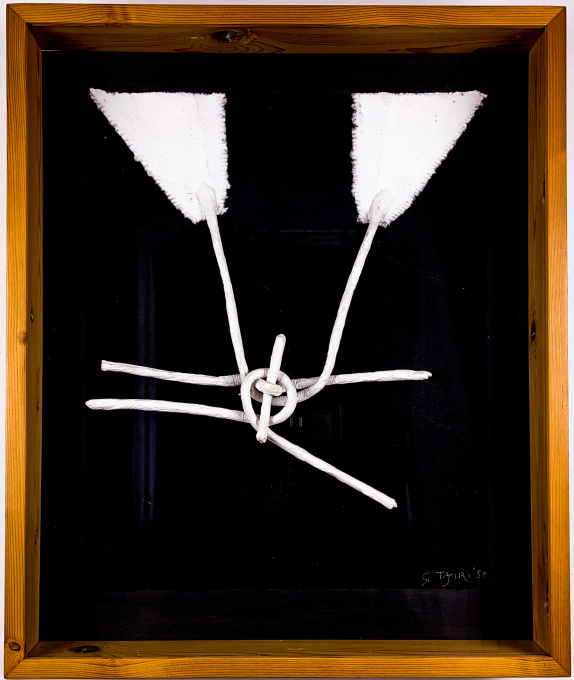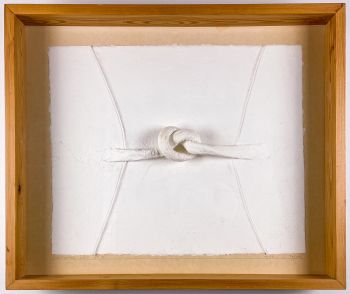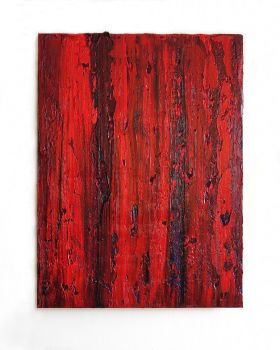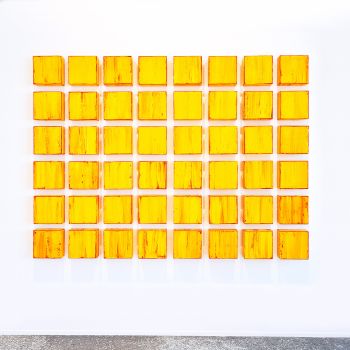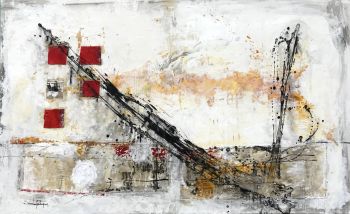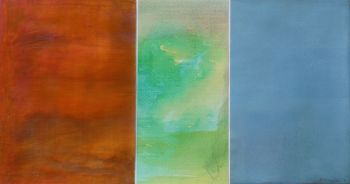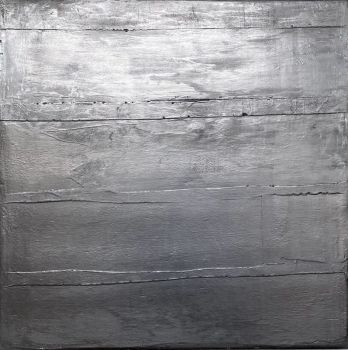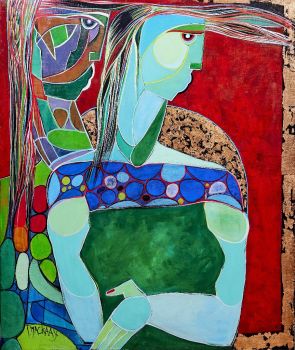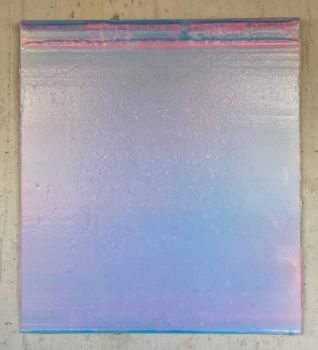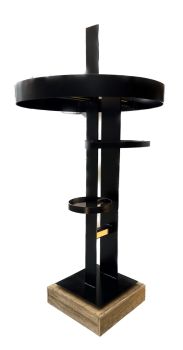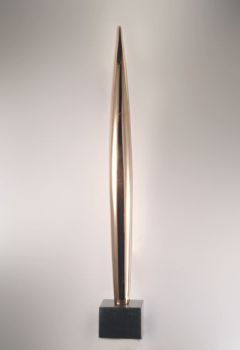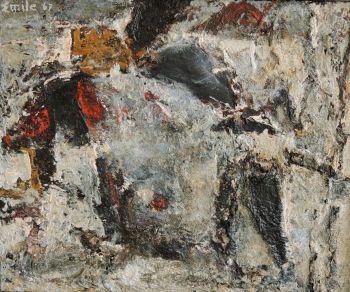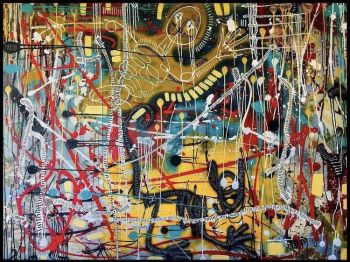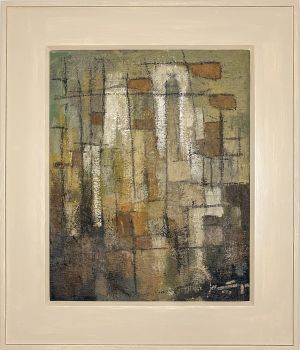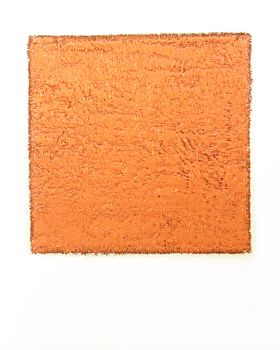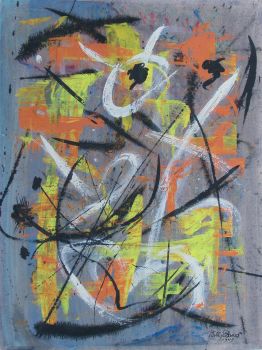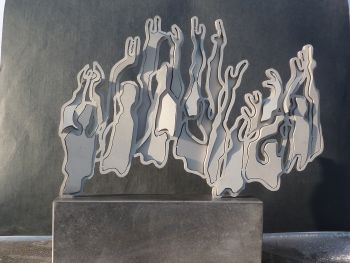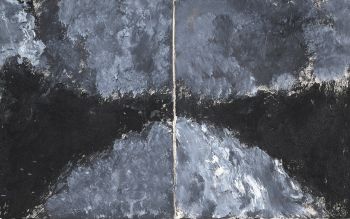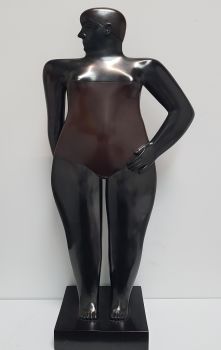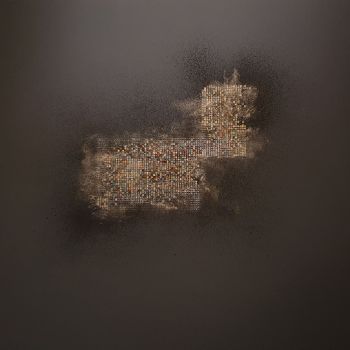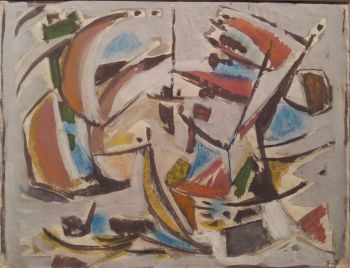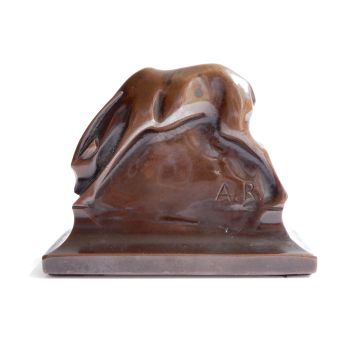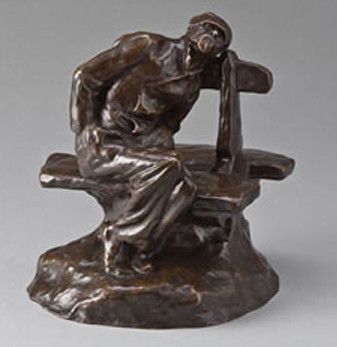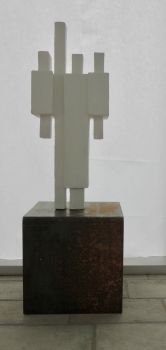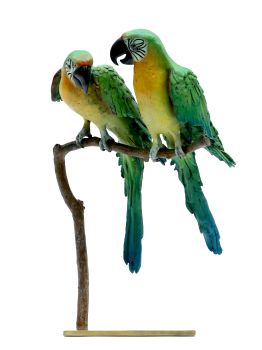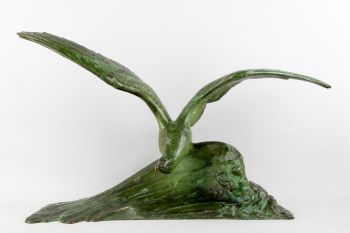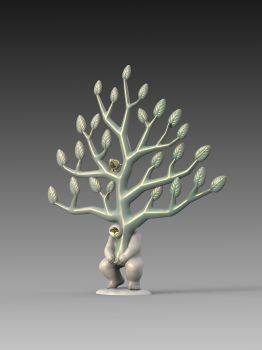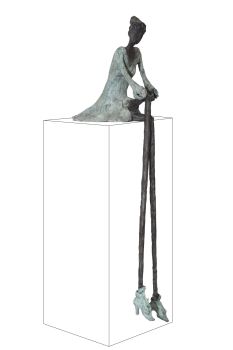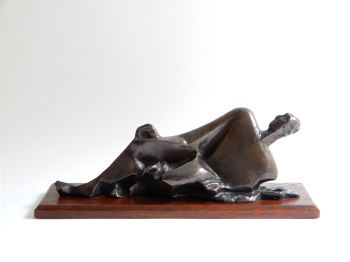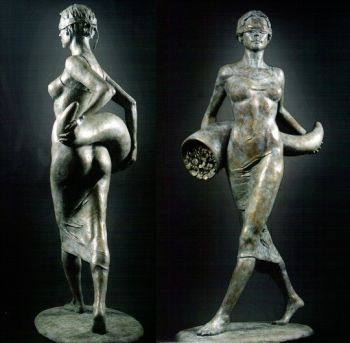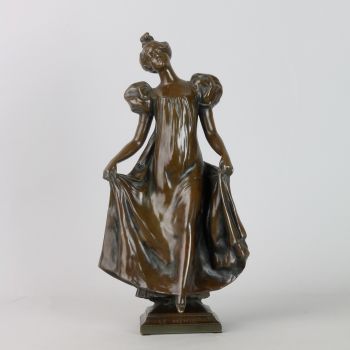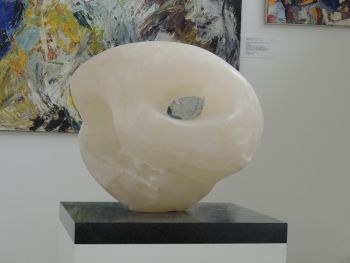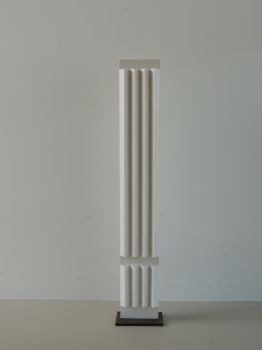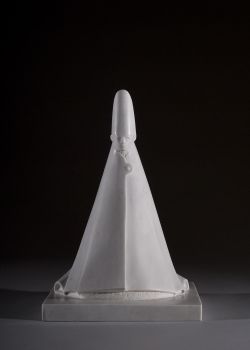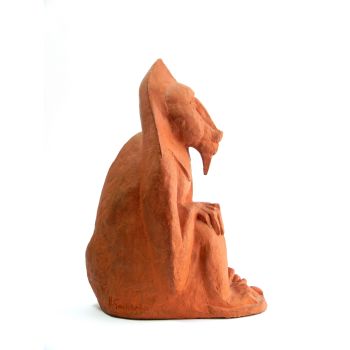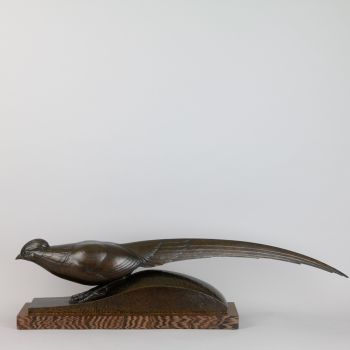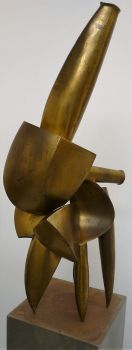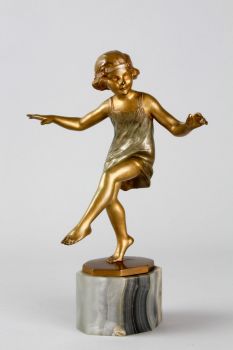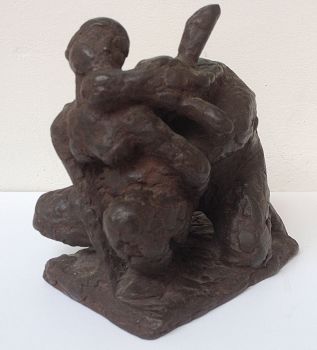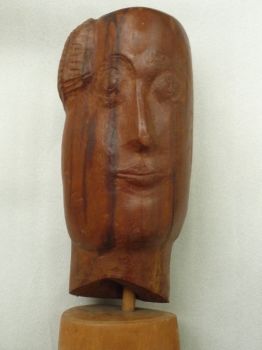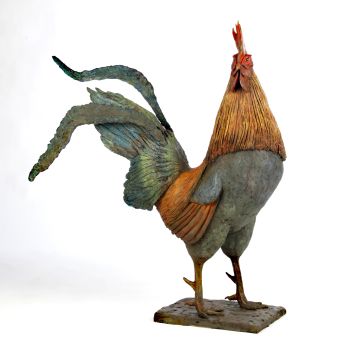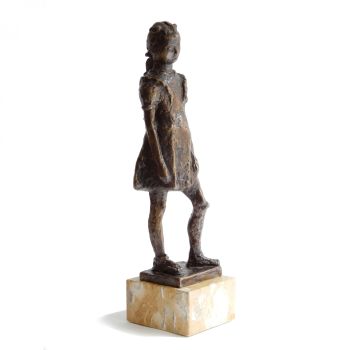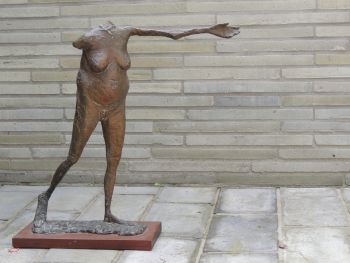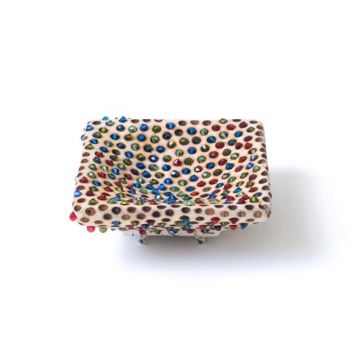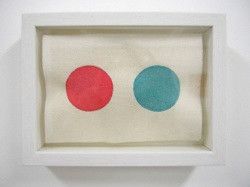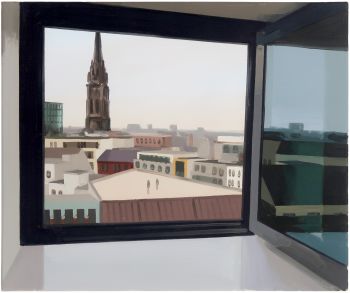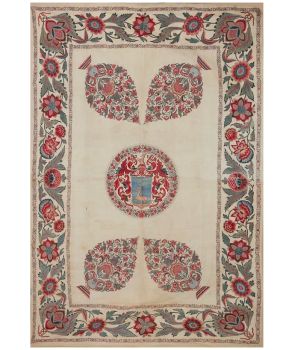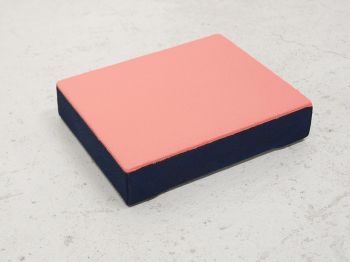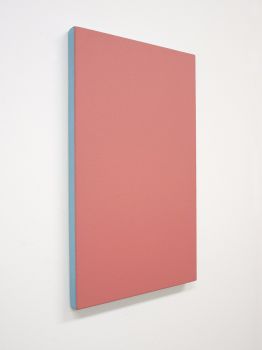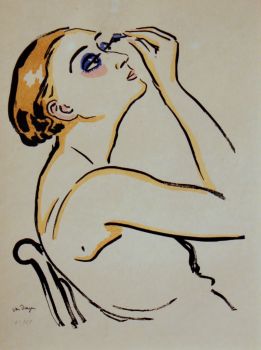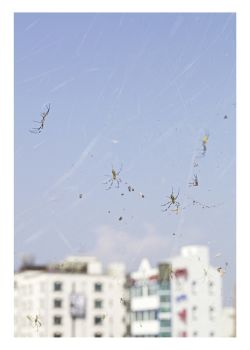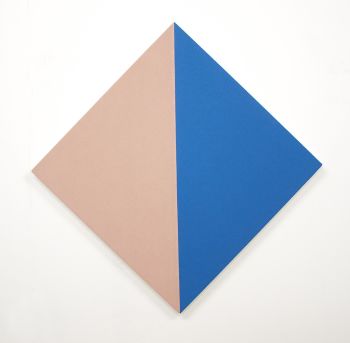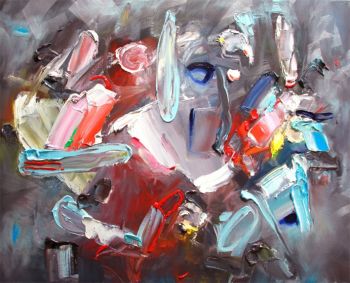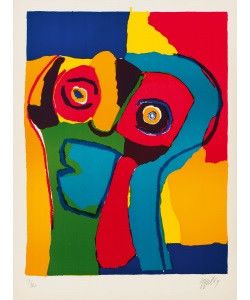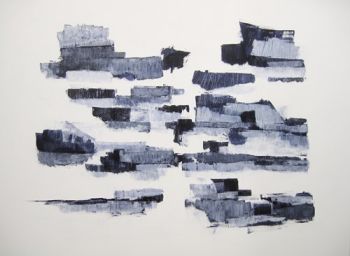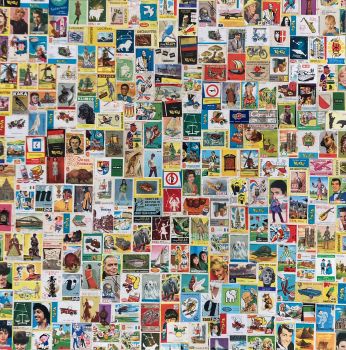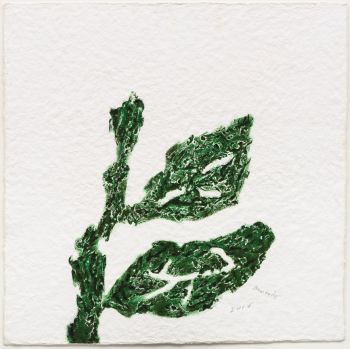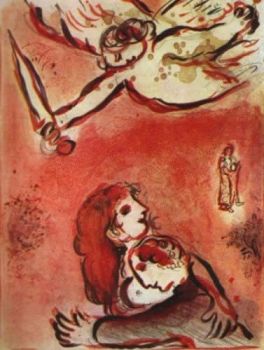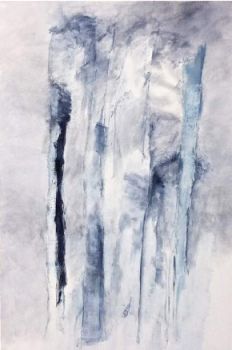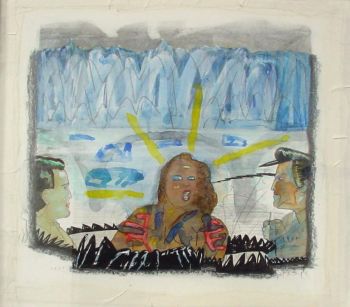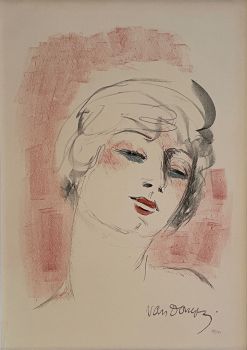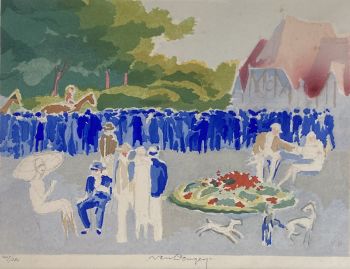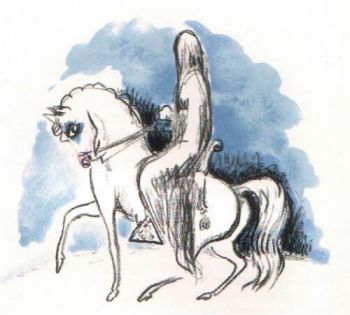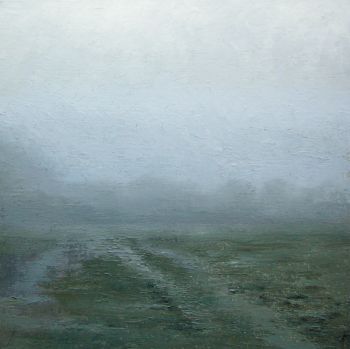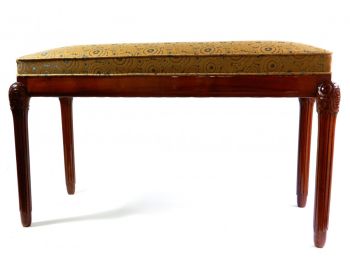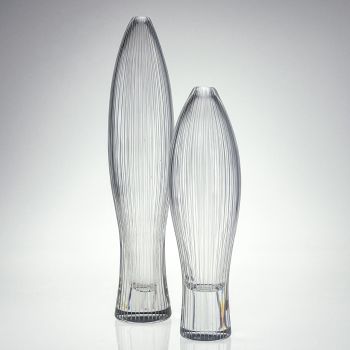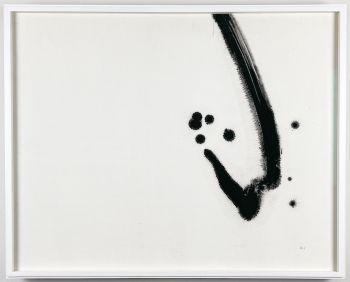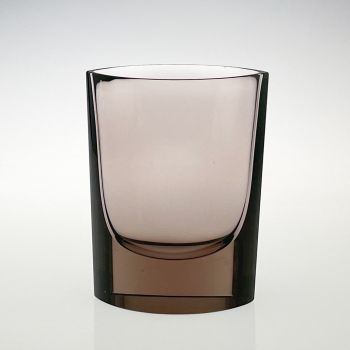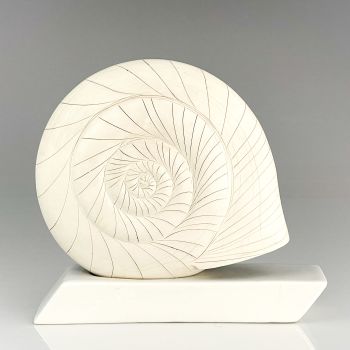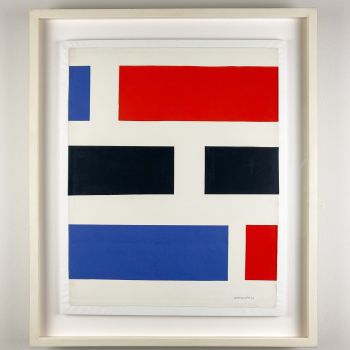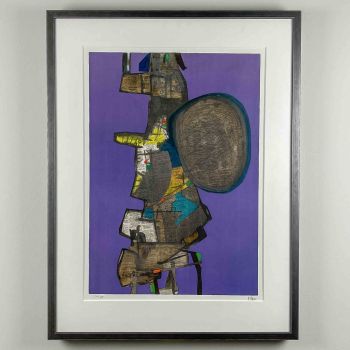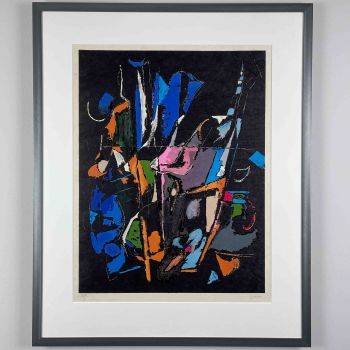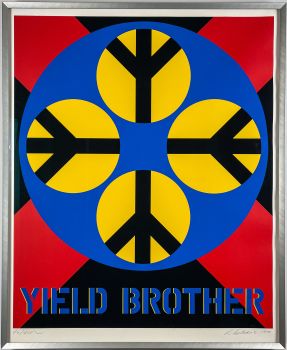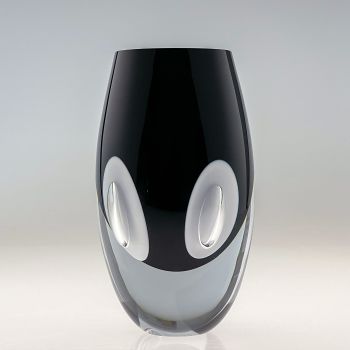“Koan” 1988 – papier-mâché / cotton on paper, original frame 1988
Shinkichi Tajiri
TêxtilPapelPapier macheAlgodão
62 ⨯ 52 ⨯ 8 cm
ConditionVery good
Preço em pedido
Van Kerkhoff Art
- Sobre arteA unique sculpture in papier-mâché / cotton laid down on paper. In original frame. Titled, signed and dated by the artist in pencil. Labeled on the back with second signature by the artist.
About Shinkichi Tajiri
Shinkichi Tajiri (Los Angeles 1923 – Baarlo 2009) was a Dutch – American artist of Japanese descent, most known for his sculpturing work.
He received his education at the Art Institute of Chicago leaving for Paris in 1948 where he studied with Ossip Zadkine, Fernand Lèger, Académie Colarossi and the Académie de la Grande Chaumière. In Paris he came into contact with several artists of the CoBrA movement and in 1949 het participated in two exhibitions of Experimental Art (CoBrA) in the Stedelijk Museum in Amsterdam in 1949 and Museé des Beaux Arts, Liège in 1951. In 1956 he moved to Amsterdam together with his wife Ferdi Jansen – also an sculptor – whom he met while studying with Zadkine.
In the late 1950’s he exhibited with several influential Dutch artist like Wessel Couzijn and Carel Visser. In the 1960’s he was invited to represent The Netherlands at the Documenta II (1959), Documenta III (1964), Documenta IV (1968) and the 31st Venice Biennale (1962). In 1969 Tajiri was appointed professor at the Hochschule der Künste in Berlin on request by its art students, where he taught until 1989. From 1962 until his passing away in 2009 Shinkichi Tajiri lived and worked at the Castle Scheres in Baarlo in the Southern part of The Netherlands.
Tajiri was a recipient of many awards and honorary titles, most notable Officer in the Order of Oranje-Nassau, Member of the Royal Academy of Belgium and Knight in the Order of the Dutch Lion. many of his sculptures are part of museal collections ie: Rijksmuseum Amsterdam, Stedelijk Museum Amsterdam, Cobra Museum Amstelveen, Bonnefantenmuseum Maastricht and Museum Het valkhof, Nijmegen.
Signed
Signed by the artist in pencil
Signed on label by the artist (verso)
Condition
Very good original condition, original frame.
Provenance
Private collection, The Netherlands
Bought directly from the artist
Dimensions
Artwork
Height 50 cm
Width 40 cm
Frame
Height 62 cm
Width 52 cm
Depth 8 cm - Sobre artista
Shinkichi Tajiri, filho de imigrantes de primeira geração do Japão, passou sua infância em Los Angeles e San Diego. Após o ataque de 1941 ao campo de aviação dos EUA no Havaí pelo exército japonês, a família de Tajiri foi enviada para o Poston War Relocation Center, um campo de internamento no Arizona.
Em uma combinação de patriotismo e seu desejo de deixar o acampamento, Tajiri logo se apresentou como voluntário para o exército e se juntou ao regimento totalmente nipo-americano, que mais tarde se tornou o regimento mais condecorado de seu tamanho na história militar americana. Ele posteriormente frequentou o Instituto de Arte de Chicago de 1946 a 1948, também trabalhando para o escultor Isamu Noguchi em Nova York.
Em 1949 mudou-se para Paris e estudou com Ossip Zadkine e Fernand Léger. Principalmente um escultor, Tajiri também fez vários filmes, vídeos, fotos estéreo e panorâmicas e trabalhos em papel premiados. Shinkichi Tajiri viu a guerra como um catalisador para se tornar um artista e considerou suas imagens uma forma de cristalizar suas experiências de guerra. Os principais temas de seu trabalho são rapidez, erotismo e violência em um confronto contínuo com as tragédias da Segunda Guerra Mundial e suas consequências.
Em 1967 e 1968 realiza uma série de esculturas com o título Máquinas como forma de protesto contra a violência da Guerra do Vietname. A máquina nº 7 1967–8 é uma escultura de aço, alumínio, acrílico e ferro cromado em forma de um híbrido de um avião de combate e uma arma, incorporando as experiências de Tajiri na violência da guerra.
Você está interessado em comprar esta obra de arte?
Artwork details
Related artworks
- 1 - 1 / 1
- 1 - 4 / 24
- 1 - 4 / 24
- 1 - 4 / 24
- 1 - 4 / 12

